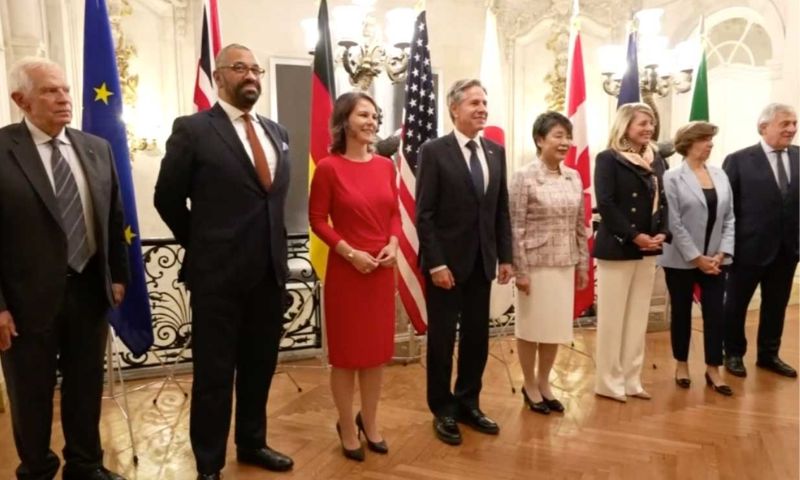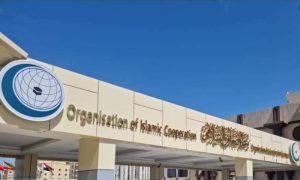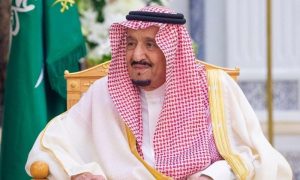TOKYO: US Secretary of State Antony Blinken arrived in Japan on Tuesday for a crucial meeting of G7 foreign ministers, with the urgent mission of forging a common stance on the Israel-Hamas conflict and escalating calls for a ceasefire.
Blinken’s arrival in Tokyo, following an extensive tour of the Middle East, marked a significant moment in international diplomacy, as the Israel-Hamas conflict had been raging for several weeks, causing immense human suffering and casualties.
The Israeli military had initiated a relentless bombardment of Gaza since October 7, responding to an attack launched by Hamas. The conflict had led to a significant loss of life, with Israeli authorities reporting 1,400 fatalities, the majority of whom were civilians. On the other side, according to the Hamas-run health ministry, the death toll in Gaza had soared to a staggering 10,000 people, including over 4,000 children. These alarming statistics underscored the urgent need for international intervention.
The United States, traditionally a key ally of Israel, had taken a somewhat measured approach, resisting direct calls for a ceasefire while advocating for temporary pauses in the fighting to allow humanitarian assistance to reach trapped civilians. US President Joe Biden had discussed potential “tactical pauses” with Israeli Prime Minister Benjamin Netanyahu, reflecting the complex dynamics at play in the region.
Amid this diplomatic backdrop, France had emerged as a vocal advocate for an immediate “humanitarian truce,” an initiative that received limited support within the G7. France stood alone among G7 members in voting in favor of a UN General Assembly resolution seeking a humanitarian truce. The United States voted against the resolution, while Japan, Britain, Italy, Germany, and Canada opted to abstain.
The G7 meeting in Tokyo aimed to address the dire humanitarian situation and the need to uphold international humanitarian law while responding to the pressing needs of civilian populations in Gaza.
Germany, another member of the G7, expressed its intent to discuss the possibility of achieving humanitarian pauses in the conflict to alleviate the suffering of people in Gaza. German counterpart Annalena Baerbock stressed that the actions of Hamas had brought immense suffering to both Israel and the Palestinian civilian population.
In addition to the Israel-Hamas conflict, the G7 foreign ministers would address the ongoing Ukraine war. Foreign Minister Dmytro Kuleba was expected to join the meeting via video conference. The G7, which had historically been at the forefront of Western efforts against Russia following its invasion of Ukraine, was anticipated to maintain its strong stance against Moscow.
While the G7 would continue to voice its support for Ukraine, there were indications that the group might take a more measured approach in its language regarding China. Recent developments, including upcoming talks between the United States and China ahead of the COP28 climate conference and a scheduled meeting between President Xi Jinping and President Biden in San Francisco, suggested a potential easing of tensions between Beijing and the West.
Furthermore, the G7 ministers would discuss deepening ties with resource-rich and strategically located Central Asia. Foreign ministers from the region were set to participate in the meeting via video conference, highlighting the importance of regional cooperation and partnerships.
The G7 meeting in Tokyo held the potential to shape the international response to two critical global issues: the Israel-Hamas conflict and the ongoing Ukraine war. The deliberations would reflect the complex geopolitical landscape and the efforts of global leaders to address pressing humanitarian concerns and regional stability.

























